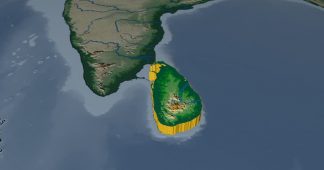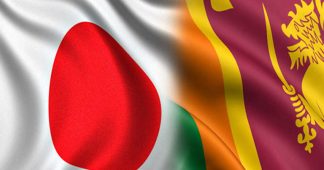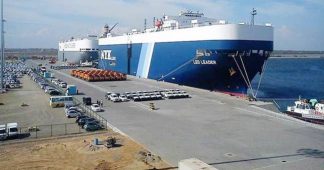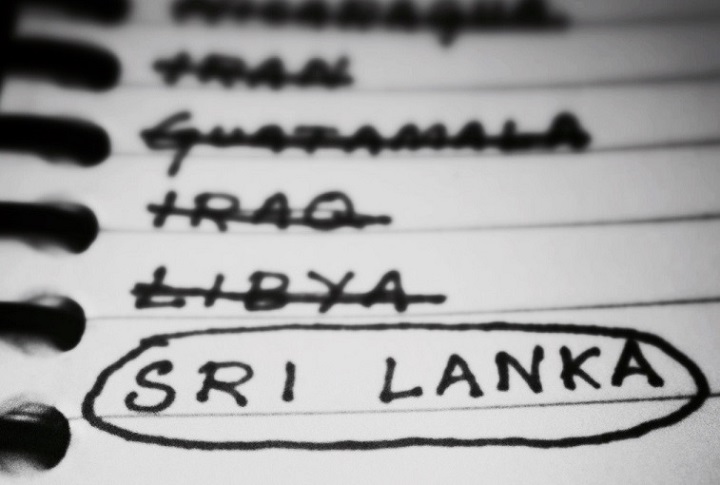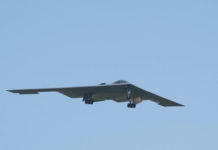By Lasanda Kurukulasuriiya
International conferenceson maritime affairs in the Indian Ocean region have seen a spike in recent times. Sri Lanka has invariably figured in these meetings by virtue of its pivotal geographic location near vital sea lanes that carry half the world’s container traffic and two thirds of its energy supplies.
The increase in the number and variety of talk-shops is not unrelated to the intensifying competition among big powers for influence in the region. The terms ‘freedom of navigation,’ ‘rules-based order,’ ‘maritime security’ etc. are routinely heard at these discussions. Sri Lanka itself hosted an international conference from Oct. 11th to 12thon the theme of ‘The Indian Ocean – Defining our Future.’ Delivering the keynote address, Prime Minister Ranil Wickremesinghe, whose office organized the event, asked a pertinent question. Is it relevant to talk about ‘freedom of navigation’ in the Indian Ocean where relative calm prevails, and freedom of navigation has largely been respected? Given the importance of the Indian Ocean, he said, the question should be whether we can leave its security and stability to chance. “Shouldn’t we take advantage of the benign strategic atmosphere that exists to create a maritime order in the Indian Ocean that can withstand challenges that may emerge in the future?” he asked.
The question needs to be seen in the light of increasing responsibilities being taken on by Sri Lanka in the area of maritime safety and security,in organisations of the littoral states. Last month members of the Indian Ocean Rim Association (IORA) met in Colombo to finalise the Terms of Reference for a Working Group on Maritime Safety and Security, that Sri Lanka is to coordinate. And in the Bay of Bengal Initiative for Multi-Sectoral Technical and Economic Cooperation (BIMSTEC), the sector on Counter Terrorism and Transnational Crime, led by India, has assigned Sri Lanka as ‘lead shepherd’ of it sub-group on ‘Intelligence Sharing.’ This raises some issues.
The goals of smaller states like Bangladesh, Myanmar and Sri Lankain these forums mainly relate to economic integration and advancement through trade, investment, technology transfer etc. But for big powers there is invariably a contest to gain strategic advantage for themselves. Adding to the familiar tensions between ‘big brother’ India and its smaller neighbours, is the intense competition for influence in the region betweentwo extra-regional powers – China and the US. In such an environment what are the chances of cooperation on ‘maritime security?’
The problem was highlighted by a student during the Q&A following a recent talk organized by the Bandaranaike Centre for International Studies in Colombo, on ‘Shared Vision for the Indian Ocean through IORA.’ The speaker Prof. Anil Sooklal, Deputy Director General of the Department of International Relations, South Africa, was asked,given the fact that IORA’s dialogue partners belong to different camps, “Are we not subjecting the organization to the same power rivalry?”(IORA’s dialogue partnersare Japan, Germany, China, UK, USA, France and Egypt.) There were no clear answers. “Hostility has been there throughout history, we need to rally to the challenge” Prof. Sooklal said. Asked why Pakistan was excluded from IORA, and whether India will take a leadership role, he said IORA worked on the basis of consensus. Pakistan’s application ‘was opposed,’ so it was turned down he said.
Further issues were flagged by a researcher at another recent discussion at the Institute of National Security Studies Sri Lanka (INSSSL). During a roundtable on ‘Sri Lanka’s role in BIMSTEC’ Natasha Fernando seemed to questionthe viability of the idea of ‘security cooperation,’ saying that ‘Intelligence sharing’ had to be differentiated from ‘Information sharing.’ “Intelligence sharing … should be for the organization, not for extra-regional powers,” she said.Earlierin a INSSSL paper on ‘Security Cooperation through BIMSTEC’ she referred to a joint agreement between India and the USA “on obtaining advanced military equipment for sharing of encrypted military intelligence.” She was presumably referring to COMCASA – the major India-US defence agreement signed early September. “In light of such bilateral security arrangements, there is a question regarding the role that BIMSTEC play in intelligence sharing and how symbiotic the arrangement is for the member states. There could also arise some scepticism on whether intelligence sharing (under a covert arrangement) could occur with an extra-regional power,” she warned.
India attaches high priority to surveillance of the Indian Ocean, and according to reports plans to use drones for the purpose. A senior Sri Lankan minister is on record having told PTI in Beijing last year that the Indian Navy is assisting Sri Lanka Navy to track submarines.
India’s major security concerns revolve around China’s maritime expansion extending into the Indian Ocean, and Pakistan’s alleged sponsorship of cross-border terrorism. The conundrum for analysts in Sri Lanka is that India, China and Pakistan are all considered friends. As a state that has no dispute with any of these parties, and an avowedly Non-Aligned country, it needs to consider whether there is a risk that intelligence shared with India could potentially end up with the US, and/or be used against China or Pakistan – both of whom are outside BIMSTEC.
These unresolved issuespoint to the complexity of security concerns in the Indian Ocean region. A lack of clarity in the motivations of different parties poses a dilemma for Sri Lankaif it is to play a ‘lead role’ in maritime security, as reports suggest.

